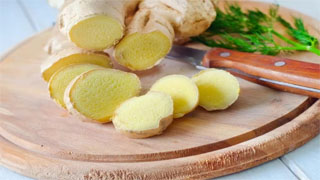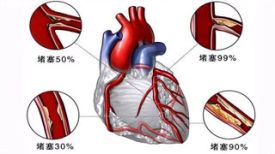
I believe everyone has heard the story of 'Shennong tasting a hundred herbs'. Legend has it that in ancient times, the Shennong clan led people to try different plants. Those that were poisonous were selected for their specificity and used as medicinal herbs; Non toxic, peaceful, cultivated as food. Afterwards, Yi Yin of the Shang Dynasty invented medicinal soup, which he was skilled in cooking and used cooking techniques to prepare medicinal herbs, gradually evolving into traditional Chinese medicine decoctions. In the common prescriptions of the ancestor of traditional Chinese medicine, "Treatise on Cold Damage and Miscellaneous Diseases," there are many ingredients used for medicinal purposes.
Grain based staple foods nourish the spleen and stomach
The ancient people relied on grains as their staple food in their daily lives. The cereal foods used in Zhongjing Jing Fang include glutinous rice, wheat, barley, adzuki beans, etc.
Japonica rice is a type of rice mainly produced in northern regions of China. It is an essential ingredient in many traditional Chinese medicine formulas, such as Baihu Tang and Zhuye Gypsum Tang, and has the effect of protecting the spleen and stomach. It can also help to better absorb mineral drugs in the formulas. Zhang Zhongjing proposed that after taking medicine (such as Guizhi Tang), drinking hot porridge boiled from cereal can not only supplement nutrition, protect the gastrointestinal tract, but also assist sweating and enhance the efficacy.
Blood and flesh products benefit essence and blood
In addition to consuming staple foods, people also consume meat, which is animal based food, in their daily lives. Common sources of protein, vitamins, and minerals for humans include livestock, poultry, aquatic products, eggs, and dairy products.
Traditional Chinese medicine refers to animal based foods as "sentient products of flesh and blood", which have a stronger nourishing effect on essence and blood than herbal medicines. The pig skin soup in the classic recipe is made of pig skin scraped off the fat, together with Rice noodles and honey. Pork has a mild nature and can nourish the kidneys, yin, blood, and dryness. Pig skin soup is mainly used for patients with yin deficiency and sore throat.
Melons, fruits, and vegetables each have their own strengths
Jujube and ginger are both household staple ingredients and commonly used in many prescriptions. There are as many as 59 classic Chinese herbal formulas for both, and taking them orally can dispel external wind and cold, and also assist in regulating the spleen and stomach. In daily life, if you occasionally feel wind cold, mild fever, headache, or body pain, you can take ginger jujube soup, or boil soup with scallion, ginger, and coriander roots for drinking, all of which have a certain effect on relieving sweating. For those who suffer from stomach cold, hiccup, and vomiting, ginger jujube tea can be used, or tangerine peel and ginger can be sliced and boiled in water as a substitute for tea.
Almonds and peach kernels are both dried nuts. Almonds relieve cough and promote bowel movements, while peach kernels promote blood circulation and remove blood stasis. It should be noted that specific varieties of almonds and peach kernels can only be used as medicine. Moreover, this nut contains a certain amount of toxic substances, which need to be processed through methods such as stir frying and soaking in water to reduce toxicity before use
Plums are processed into black plums, which have the effects of nourishing yin, generating saliva, and quenching thirst. The sour plum soup commonly consumed in summer is made by mixing black plums with tangerine peel and licorice.
According to traditional Chinese medicine theory, diet should also be moderate and timely. Confucius proposed in the Analects of Confucius that 'we should not eat from time to time', which means telling us to eat appropriately according to the season. During the spring of the year and in the morning of the day, when yang qi is generated, it is suitable to take warm and nourishing substances. On the contrary, during the autumn and winter seasons, or at dusk, the yang energy should be restrained and hidden, and it is not advisable to use dispersing products at this time. Taking ginger as an example, "Do not eat ginger in August and September, it hurts the gods" and "Eating onions, garlic, ginger, etc. at night can hurt people's hearts". By grasping the principles of prescription and medication in this way, dietary therapy and health preservation can be carried out with ease, flexibility, and moderation.


